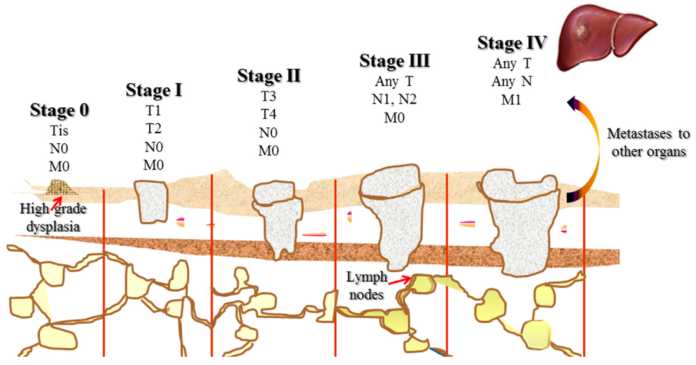
Exploring the Potential of Alternative Therapies in Treating Colon Cancer
Introduction:
Colon cancer, also known as colorectal cancer, is a prevalent and potentially deadly disease that affects the colon or rectum. It is the third most commonly diagnosed cancer worldwide, and its treatment often involves a combination of surgery, radiation, and chemotherapy. However, as the understanding of cancer and its treatment expands, there is growing interest in exploring the potential benefits of alternative therapies in fighting this formidable disease. In this article, we will delve into various alternative therapies and their potential in treating colon cancer.
Alternative Therapies:
1. Acupuncture: Acupuncture is an ancient Chinese practice that involves inserting thin needles into specific points of the body. Some studies have suggested that acupuncture may alleviate pain and reduce chemotherapy-related side effects such as nausea, vomiting, and fatigue. Moreover, it has shown potential in enhancing immune response, which can be crucial in fighting cancer cells.
2. Herbal Supplements: Many natural compounds derived from plants have demonstrated anticancer properties. For example, curcumin, a compound found in turmeric, has exhibited anti-inflammatory and anticancer effects. Its ability to inhibit cancer cell growth and promote apoptosis has raised hopes for its potential role in managing colon cancer. Green tea extract, resveratrol, and ginger are some other herbal supplements that have shown promise in preclinical studies.
3. Mind-Body Techniques: Stress and emotional well-being have a significant impact on our health. Mind-body techniques such as meditation, yoga, and mindfulness-based stress reduction have been found to enhance quality of life, reduce stress levels, and boost the immune system. These techniques can assist patients in coping with the emotional burden of cancer and help alleviate some of its symptoms.
4. Dietary Approaches: Emerging research is exploring the impact of diet on cancer prevention and treatment. A plant-based diet, rich in fruits, vegetables, whole grains, and legumes, has been associated with a reduced risk of colon cancer. In addition, certain dietary supplements like omega-3 fatty acids, vitamin D, and probiotics have shown promise in reducing inflammation, promoting gut health, and strengthening the immune system.
Frequently Asked Questions (FAQs):
Q1. Are alternative therapies a substitute for conventional treatments?
A1. No, alternative therapies should not be used as a substitute for conventional treatments such as surgery, radiation, and chemotherapy. They can be used as complementary therapies to support conventional treatments and improve overall well-being.
Q2. Are these alternative therapies supported by scientific evidence?
A2. While many alternative therapies have shown promise in preclinical studies and anecdotal evidence, large-scale clinical trials are required to establish their efficacy and safety in treating colon cancer.
Q3. Can alternative therapies cure colon cancer?
A3. The effectiveness of alternative therapies in curing colon cancer is yet to be established. However, they can potentially enhance the body’s ability to fight cancer cells, reduce side effects of conventional treatments, and improve quality of life.
Q4. Are there any risks associated with alternative therapies?
A4. Some alternative therapies may have side effects or interact with conventional treatments. It is essential to consult with healthcare professionals before incorporating any alternative therapy into your treatment plan.
Q5. How can I find reputable practitioners of alternative therapies?
A5. It is crucial to seek practitioners who have appropriate qualifications and experience in their respective fields. Consultation with healthcare professionals and seeking recommendations from trusted sources can help you find reputable practitioners.
Conclusion:
While alternative therapies show promise in complementing conventional treatments for colon cancer, their effectiveness and safety need further exploration through robust clinical trials. It is essential to remember that these therapies should be used as adjuncts to standard treatments and under healthcare professionals’ guidance. As research progresses, alternative therapies may play an increasingly significant role in improving the outcomes and quality of life for colon cancer patients.

















